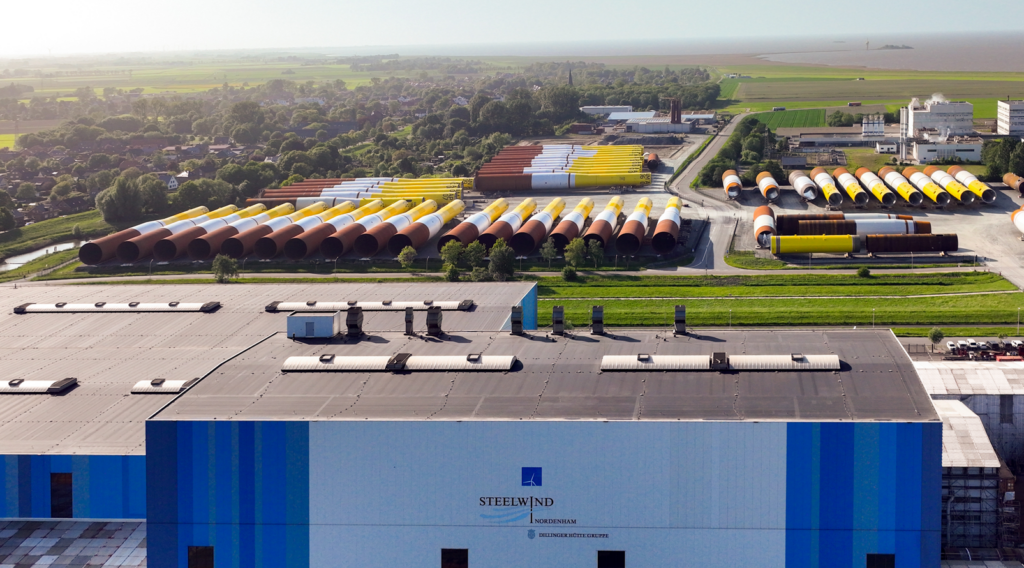RWE has signed a capacity reservation agreement with German company Steelwind Nordenham for the production of up to 300 monopile foundations for its future offshore wind projects in Europe.
Steelwind will reserve capacity at its Nordenham facility for 320,000 tonnes of steel, equating to approximately 200 monopiles, over a 24-month period starting in 2027.
The contract includes an option for a twelve-month extension and offers additional capacity of 160,000 tonnes of steel, enough for about 100 monopiles.
The monopiles are planned for offshore wind farms that RWE expects to commission in Europe from the end of 2029. The agreement also allows RWE to opt for additional services from Steelwind, such as secondary steel structure delivery and storage and marshalling support.
“By signing an agreement with Steelwind, RWE has taken a big step towards securing the necessary production capacity for monopile foundations and delivering our European offshore wind development projects. This type of framework agreement is exactly what we need given the challenging market conditions,” said Holger Himmel, CFO of RWE Offshore Wind.
Steelwind has been manufacturing monopiles and single-piece foundations with unit weights up to 2,400 tonnes for offshore wind farms since 2014. The steel for these monopile foundations is supplied by Dillinger.
RWE has put 19 offshore wind farms into operation over the past 20 years, including six off the German coast. The company aims to triple its global offshore wind capacity from 3.3 GW to 10 GW by 2030.
In other news, RWE recently signed a Letter of Support with the Port Authority of Setúbal to explore the potential of the port, located south of Lisboa, to become an important industrial hub for marshalling, assembly, and deployment of components for large-scale floating offshore wind projects.
Original Story at www.offshorewind.biz
